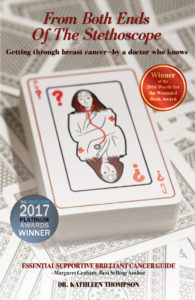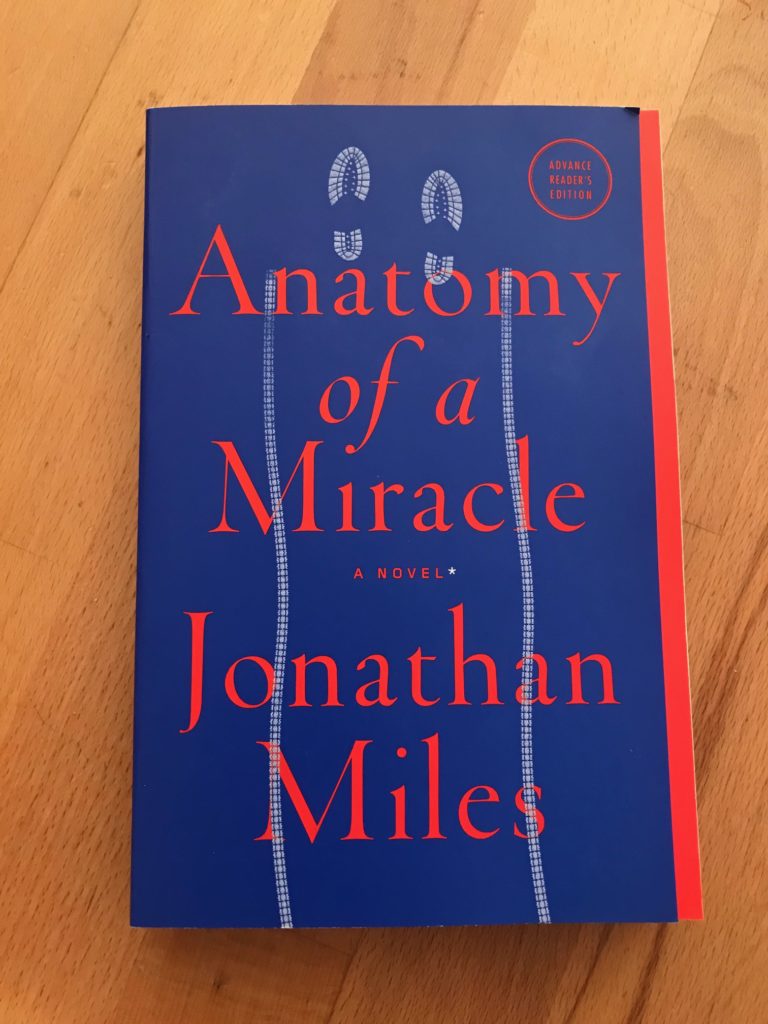 I suppose I’m an unusual writer. I write lots of factual stuff for my day job – I’m a doctor and test new medicines to check they work and are safe. However I am also enjoying writing an Italian novel currently. I’m familiar with the Italian way of life, psyche and language and it’s fun to create an insight into the truth behind la vita bella d’Italia for the reader.
I suppose I’m an unusual writer. I write lots of factual stuff for my day job – I’m a doctor and test new medicines to check they work and are safe. However I am also enjoying writing an Italian novel currently. I’m familiar with the Italian way of life, psyche and language and it’s fun to create an insight into the truth behind la vita bella d’Italia for the reader.
My first book was a self-help guide for breast cancer – From Both Ends of the Stethoscope: Getting through breast cancer—by a doctor who knows which won two book awards –the Words For The Wounded Book Award 2016 and the Janey Loves (Radio 2’s Janey Lee Grace) 2017 Platinum Award. When I had breast cancer myself, even I found the hospital experience confusing and frightening. How much harder for people without a medical background? So I wanted to provide the knowledge people needed, quickly but easily – people with cancer are in a state of shock and it’s hard to absorb things. I wrote the guide using my personal experience, whilst drip-feeding what people needed to know. You can read my book from start to finish, or dip into chapters – each one deals with a specific aspect of your cancer journey, and finishes with a summary and further information. Because of my background, I’m passionate about debunking internet medical ‘facts’. There is good information out there, but also much which is misleading or dangerous. I share simple rules for assessing the quality of the information in my book, and also summarise how to reduce cancer risks through life-style.
Since then I’ve written articles for Frost Magazine, and Huffington Post. I love demystifying medical issues for people – it shouldn’t be complicated.
So how do I write? My biggest challenge is expressing emotion. As a scientific writer I’m used to stating facts, there’s no place for feelings in a scientific report. But people kept asking me what having breast cancer was like. So I had to take a deep breath and really describe my feelings. I’m getting better, but I still find it hard to let go and show my vulnerability.
My breast cancer guide pretty much wrote itself. Odd things happened during the course of my cancer – unpleasant for me, but perfect material for a book – such as when my operation was nearly cancelled literally at the final hour, and when a doctor tried to give me radiotherapy to the wrong area – it was as though a writer in the sky were choreographing my life to make a perfect story. For novels, I try to write a plan first. I detail the synopsis, the characters and the chapters.
I like to write concisely – and prune my work repeatedly. This lends itself to online journalism, like Frost Magazine, as people can see the whole article on a smartphone page.
If you’re inspired to start writing, you should find a good creative writing course, run by an experienced published author. I learned so much about writing technique from my mentor, the best-selling author Margaret Graham. Join a writing group and share your work with your peers – you’ll get essential feedback. Writing a book takes longer than you think. Until you’re very experienced you’ll need to rewrite until it works. But if you enjoy it – keep going, it’s a lot of fun.





